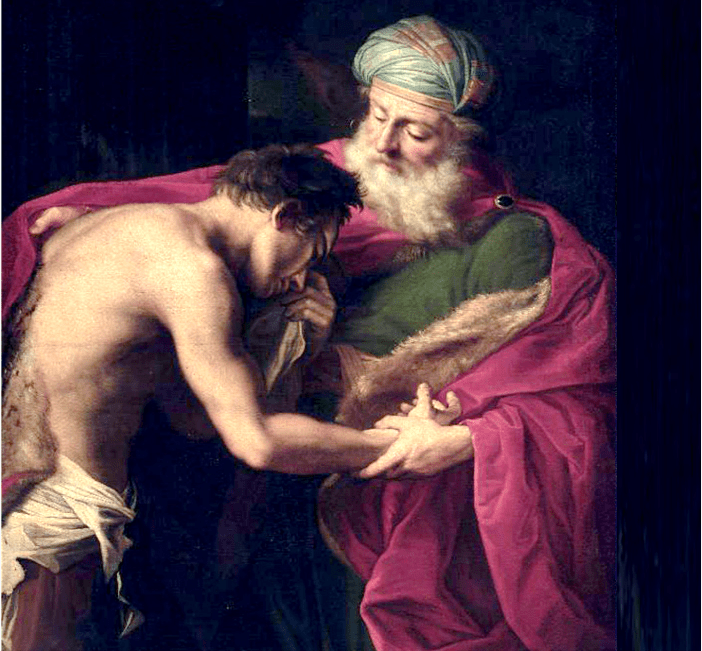The book of Joshua tells of the Israelites coming into the Promised Land, where they no longer needed to be fed with manna as in the desert. They had been wandering much longer than expected because of their unfaithfulness. But now they are forgiven and so celebrate the Passover with food from the land. Then we hear the Gospel parable about another feast. This one is also a celebration of forgiveness, for the prodigal son has returned to his father, and the father’s forgiveness shows us how willing God is to forgive us. That’s where we end the parable, right?
Wrong. The parable continues with the older son’s complaint about a feast for his brother. That son cannot forgive his brother and is angry at the father for welcoming the prodigal back. This is where we come in. Most of us have no trouble asking God’s forgiveness. But we may have trouble forgiving others. We are so used to thinking in terms of justice that we are not satisfied with forgiveness. When I have been hurt, I feel like hitting back.
We have to ask ourselves whose idea of justice we live by. Is it the human expectation of an eye for an eye? Or is it God’s justice, which is mercy and forgiveness? When someone cuts you off in traffic, do you feel like firing the photon torpedoes, or offering forgiveness? The Golden Rule could be “Forgive others as you would be forgiven.” Jesus gave his life for the sins of the world. Do we have the right to ask for more?
Tom Schmidt, Diocesan Publications


